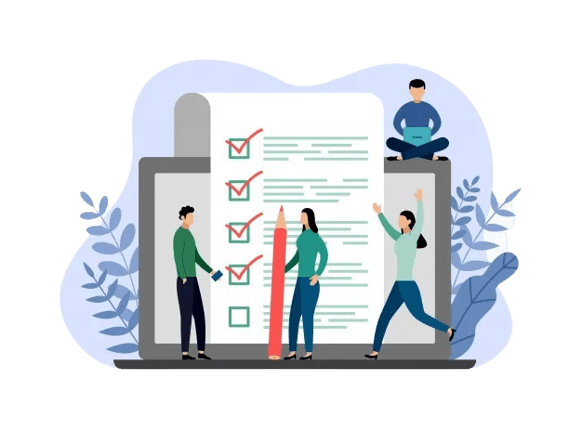Contamination OCD Assessment
3 Min Free Contamination OCD Assessment
Who Can Benefit From This Contamination OCD Assessment?
Individuals who are experiencing symptoms of Contamination OCD can benefit from this assessment. Contamination OCD is a subtype of obsessive-compulsive disorder characterized by excessive fears of germs, dirt, or contamination.
The assessment helps identify and evaluate the presence and severity of contamination-related obsessions and compulsions. It can be valuable for those seeking a better understanding of their symptoms, as well as mental health professionals who can utilize the assessment results to develop targeted treatment plans and interventions tailored to the individual’s needs.

Contamination OCD Assessment Accuracy

The accuracy of a Contamination OCD assessment can vary depending on the specific assessment tool used and how it is administered. Valid and reliable assessment measures, such as structured interviews or self-report questionnaires, can provide accurate results when used correctly.
However, it’s important to note that self-assessment tools may be influenced by subjective interpretation and reporting biases. To ensure higher accuracy, assessments should be conducted by trained professionals and used as part of a comprehensive evaluation that includes clinical judgment and consideration of other relevant factors.
Types of Contamination OCD Assessment
Structured Clinical Interview for DSM-5 (SCID)
A standardized interview that assesses symptoms and diagnoses based on the Diagnostic and Statistical Manual of Mental Disorders (DSM-5).
Yale-Brown Obsessive Compulsive Scale (Y-BOCS)
Measures the severity of obsessive-compulsive symptoms, including contamination-related obsessions and compulsions.
Obsessive Compulsive Inventory-Revised (OCI-R)
A self-report measure that assesses various symptom dimensions of OCD, including contamination concerns and washing compulsions.
Padua Inventory-Revised (PI-R)
A self-report questionnaire that evaluates obsessive-compulsive symptoms across different domains, including contamination obsessions and cleaning rituals.
Maudsley Obsessional-Compulsive Inventory (MOCI)
A self-report scale that measures different types of obsessive thoughts and compulsive behaviors, including contamination concerns.
Florida Obsessive-Compulsive Inventory (FOCI)
A self-report measure specifically designed to assess contamination-related obsessions and related compulsions in individuals with OCD.
Handling Contamination OCD
Managing and coping with Contamination OCD involves a comprehensive approach that may include the following strategies:
- Psychotherapy: Cognitive-behavioral therapy (CBT), particularly exposure and response prevention (ERP), is often recommended. ERP helps individuals gradually confront their fears and resist engaging in compulsive behaviors.
- Medication: In some cases, medication such as selective serotonin reuptake inhibitors (SSRIs) may be prescribed by a psychiatrist to help alleviate symptoms of OCD.
- Education and understanding: Learning about OCD and understanding its mechanisms can help individuals gain insight into their condition and reduce self-blame.
- Self-care: Practicing good hygiene and maintaining a healthy lifestyle can help individuals feel more in control and reduce anxiety. However, it is important to strike a balance and avoid excessive cleaning rituals.
- Support system: Building a strong support network, including friends, family, or support groups, can provide emotional support and understanding during challenging times.
- Stress management: Developing stress-reducing techniques such as mindfulness, relaxation exercises, and engaging in enjoyable activities can help manage anxiety and prevent OCD symptoms from escalating.
- Gradual exposure: Gradually facing feared situations or triggers without engaging in compulsions can help desensitize individuals to their fears over time.
Remember, it is essential to consult with a mental health professional for an accurate diagnosis and personalized treatment plan tailored to your specific needs.

